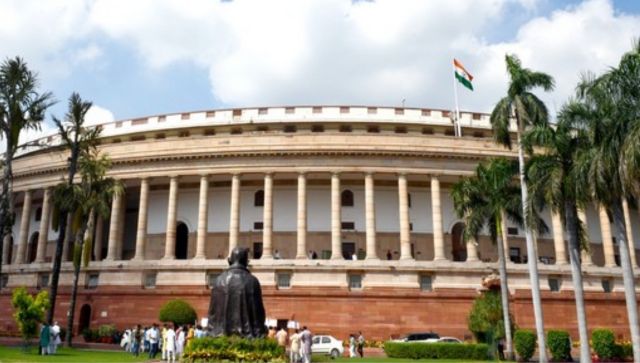The Centre has called a special session of Parliament in September. The announcement of Parliament meeting for five days between 18 and 22 September was made by Parliamentary Affairs Minister Pralhad Joshi.
Special Session of Parliament (13th Session of 17th Lok Sabha and 261st Session of Rajya Sabha) is being called from 18th to 22nd September having 5 sittings. Amid Amrit Kaal looking forward to have fruitful discussions and debate in Parliament.
— Pralhad Joshi (@JoshiPralhad) August 31, 2023
ಸಂಸತ್ತಿನ ವಿಶೇಷ ಅಧಿವೇಶನವನ್ನು… pic.twitter.com/k5J2PA1wv2
The session will be held just days after the G20 Summit concludes in the National Capital. But how is a special session of Parliament convened? Let’s take a closer look: First, let’s briefly examine how Parliament is convened.
India does not have a fixed parliamentary calendar.
Instead, Parliament is generally held in three separate sessions every year – the Budget Session, the Monsoon Session and Winter Session. This fulfils the mandate of Article 85 of India’s Constitution which calls on Parliament to meet ‘at least twice a year’, as per India Today. Article 85 notes that the period between two sessions should not be greater than six months. between two sessions should not exceed six months. As per PRS, the Article is based on a provision of The Government of India Act, 1935. Though the General Purpose Committee of Lok Sabha in 1995 recommended a ‘general scheme’ of sittings, the government of then prime minister Jawaharlal Nehru did not implement the idea, as per the website. It is the Centre that decides when Parliament will be called. More specifically, it is the Cabinet Committee on Parliamentary Affairs that comprises nine ministers including defence, home, finance, and law that takes the decision, as per Indian Express. This is then given the green light by the President of India. The MPs are called to meet in both Houses in the name of the president. [caption id=“attachment_13062202” align=“alignnone” width=“640”] President Droupadi Murmu. PTI file[/caption] As per PRS, successive governments have moved the dates of sessions back and forth whenever necessary. In 2017, for example, the Gujarat Assembly elections caused the Winter Session to be delayed. In 2011, the need to campaign for Vidhan Sabha elections in five states caused political parties to approve reducing the Budget Session. Sessions have also been extended, as per PRS. Perhaps the most prominent example of this was the two-day Monsoon Session in 2008 which prolonged to December. At the time, a no-confidence vote had been tabled against the then UPA-I regime over the US nuclear deal. That resulted in 2008 having just two sessions of Parliament, as per PRS. Previous special sessions This isn’t the first time Parliament will meet outside its three usual sessions.
The last time this occurred was midnight of 30 June, 2017.
That session was held to mark the roll out of Goods and Services Tax. That session was not a proper session but rather a joint sitting of Lok Sabha and Rajya Sabha. A six-day special sitting was held in August 1997 to commemorate the 50th anniversary of India’s independence. Midnight sessions have also been held on 9 August, 1992 for the 50th anniversary of ‘Quit India Movement’; on 14 and 15 August, 1972 to celebrate the silver jubilee of India’s independence. The first such midnight session was on 14 and 15 August, 1947, on the eve of India’s independence – when Nehru gave his famous ‘Tryst with Destiny’ speech. [caption id=“attachment_12969782” align=“alignnone” width=“640”] India’s first prime minister Jawaharlal Nehru.[/caption] Speculation about agenda on, Opp slams Centre Sources said the special session could see parliamentary operations being shifted to the new Parliament building which was inaugurated by Prime Minister Narendra Modi on 28 May. Final touches are being given to the new Parliament building to make it ready to host sessions. With the government not spelling out its agenda, speculation swirled about some showpiece bills being considered for passage by the Modi dispensation in the run-up to the Lok Sabha elections. The recent historic success of Chandrayaan-3 mission and India’s goals for ‘Amrit Kaal’ may be part of the wider discussions during the special session. Congress leader Jairam Ramesh claimed that the five-day session just three weeks after the end of Monsoon session was aimed at managing “the news cycle” and counter the news about the ongoing meeting of INDIA parties in Mumbai and the latest revelations on Adani. “Regardless, the JPC demand (on Adani issue) will continue to resonate inside and outside Parliament,” the Congress MP added. Shiv Sena (UBT) leader Priyanka Chaturvedi said on ‘X’ that the special session called during “India’s most important festival of Ganesh Chaturthi is unfortunate and goes against the Hindu sentiments. Surprised at their choice of dates.” Supriya Sule of the UBT tweeted:
Just read about the upcoming Special Parliament Session (13th Session of 17th Lok Sabha & 261st Session of Rajya Sabha) happening from Sep 18-22.
— Supriya Sule (@supriya_sule) August 31, 2023
Whilst we all look forward towards meaningful discussions and dialogue, the dates coincide with the Ganpati Festival, a major…
Impact Shorts
More ShortsIncidentally, the special session is being convened a day after the birthday of Modi. The BJP observes the 16-day period from Modi’s birthday to Gandhi Jayanti on 2 October as ‘sewa pakhwara’ during which various programmes are held across the country. The Monsoon Session of Parliament concluded on 11 August. With inputs from agencies


)

)
)
)
)
)
)
)
)



